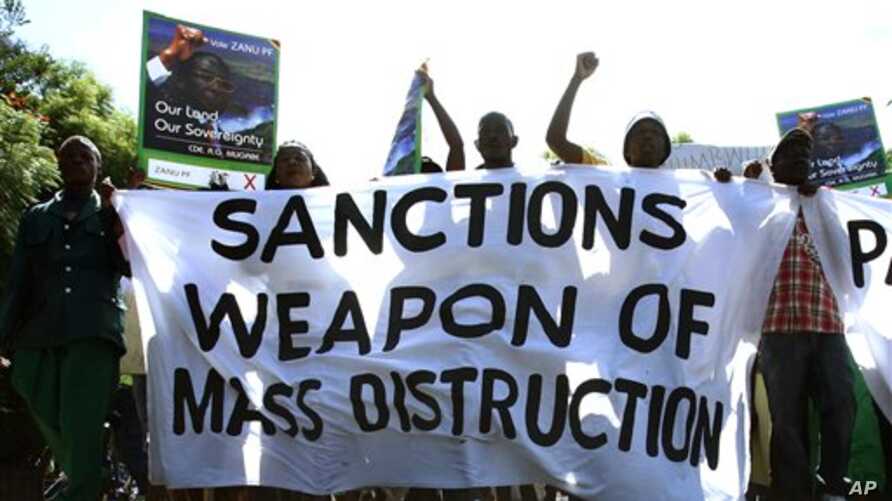The United States (US) has maintained its position that sanctions imposed on Zimbabwe are targeting individuals and entities that have been flagged for corruption, human rights abuses and undermining democratic processes.
Sanctions have been in place for two decades in Zimbabwe, but the US says the embargo only targets 83 individuals plus 37 entities and not the Zimbabwean people.
“When it comes to Zimbabwe and sanctions, our sanctions there target human rights abusers and those who undermine democratic processes or facilitate corruption. I want to be very clear that these sanctions do not target the Zimbabwean people,” said US Department Spokesperson, Ned Price while responding to questions at a US Department Press Briefing on October 15.
His sentiments come as Zimbabwe hosts United Nations Special Rapporteur on the negative impact of unilateral coercive measures on the enjoyment of human rights, Alena Douhan, who is on an official visit to the country starting this Monday to Thursday.
The Special Rapporteur and her team will collect information and hold a series of meetings with government authorities, civil society organisations, private sector and the opposition.
After her meetings and site visits, Douhan will present a public report on the country’s visit to the United Nations Human Rights Council during its 51st Session in September 2022.
However, the US Department Spokesperson, highlighted that poor governance was the reason for Zimbabwe’s economic meltdown and not sanctions.
“Zimbabwe’s economic ills, we know, are caused by leaders, those leaders abusing power, not US sanctions. Our sanctions target only 83 individuals and 37 entities. We review our sanctions list regularly to acknowledge developments in Zimbabwe,” Price said.
Price explained that the sanctions made it difficult for the targeted individuals and companies to do business globally.
“US sanctions do make it more difficult for targeted individuals and entities to access funds through the global financial infrastructure. Sanctions do not target Zimbabwe’s banking sector, but rather make sure that sanctioned individuals and entities cannot use the US financial system to enjoy their ill-gotten gains,” said the Department Spokesperson.
He also pointed out that blaming sanctions did not take away the core reason why Zimbabwe was underperforming.
“To be very blunt, blaming US sanctions for Zimbabwe’s problems detracts from the core issues of better governance that are required in Zimbabwe, and to that end, Zimbabwe must make reforms consistent with its constitution, with its international obligations, and with its other commitments,” Price said.
Zimbabwean authorities set October as the anti-sanctions month, while SADC, the regional bloc, also declared October 25 in 2019 as the day of solidarity with Zimbabwe in the fight against sanctions.
Political analysts have said that campaigning against sanctions, without proper reforms, will not achieve much.
Posting on social microblogging site, Twitter, MDC Alliance National Spokesperson, Fadzai Mahere said corruption and bad economic reforms were to blame for the country’s problems.
“When a nation has no respect for property rights, specialises in corruption and has a poisonous economic policy, investors run away. This has nothing to do with sanctions. Ask yourself why (Aliko) Dangote (Africa’s richest person, who founded Dangote Cement, the continent’s largest cement producer) took one look at Zimbabwe and never came back. Bad governance, not sanctions,” she said.

